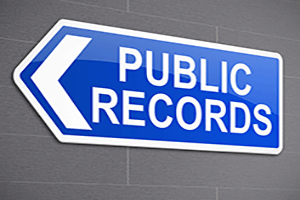Galveston County Public Records
Access top public records is a right of every US citizen. They offer bright insights that highlight the innerworkings workings of most government agencies, court proceedings, law enforcement and more. In Galveston County, these records are accessible to the public, which is guaranteed by the Texas Public Information Act and the federal Freedom of Information Act (FOIA). But how does one access these records? Are there any restrictions to accessing public information? This guide will walk you through the process. It will also cover how to access records from government agencies and third-party services.
We'll also outline the the various types of records available. From civil court records and criminal records to property records and vital records, we'll help you understand what's at your disposal. Lastly, we'll cover any privacy restrictions that are important to know. It's always a good idea to be familiar with any restrictions to understand the balance between public access and individual privacy.
Understanding Galveston County Public Records
Public records are all about transparency and accessibility. They create openness, and checks and balances in government operations. These records are managed and made available by different government bodies, with each agency being responsible for the specific types it maintains.
The Texas Public Information Act and the federal FOIA grants this access to the public. It guarantees that individuals have the right to obtain public records.
Public records cover a lot of information that can be online most of the time. They include vital, property, criminal, driving, vehicle, court records, and incarcerations, among others. Knowing what is available helps and from what agency will streamline searches effectively.
Types of Public Records Available in Galveston County
There are a copious amount of public records accessible on a local, state and national level. These records provide different purposes for the community. Each record type fulfills a unique need, as they provide useful information for personal or legal purposes. and hold government agencies accountable for what information they collect and share. Accessing these records can vary, some records can be obtained online while others need a formal request to be submitted in person. Understanding the correct source will simplify the process of obtaining them. Records are categorized into distinct types. Each type has specific use and importance.
1). Vital Records: Birth, death, marriage, and divorce certificates.
2). Property Records: Deeds, ownership, and tax details.
3). Court Records: Civil, criminal, and family case information.
4). Criminal Records: Arrests, convictions, and incarcerations.
5). Driving Records: Driver history, DUIs & DWIs, traffic citations, driving record points, suspensions.
6). Vehicle Records: Vehicle history reports, title information and safety recalls.
7). Official Documents: Meeting minutes, budgets, and reports.
How to Access Public Records from Galveston County Government Agencies
Accessing public records traditionally can be done by contacting the relative government agency that manages them. County government agencies provide multiple options. In-person visits, online portals, and mail requests are common. Knowing which method fits your needs is a good first step. For most, going online and accessing records through public access portals is the most convenient method. Here are some of the most common methods used for accessing Galveston County public records, on both a local and state level.
1). The County Clerk's Office is often the first stop. They allow access to a broad range of county records for court case proceedings and court dockets.
2). The Texas Department of State Health Services offers access to vital records. They handle birth, death, marriage, and divorce records.
3). Property and tax information are found at the County Appraisal District. Their website offers detailed data on tax collection, property taxes, and voter registration.
4). Court records require contacting the County District Clerk's Office. Civil, criminal, and family cases are housed there.
5). The Texas Department of Public Safety (DPS) is responsible for issuing driver records, suspensions, and driver history.
6). The Texas Department of Motor Vehicles (DMV) is responsible for vehicle records, registration, and vehicle titles.
Each agency has specific procedures. By understanding these various agencies and records they keep, can be a real time-saver. When requesting records, it's important to double-check required documents before making requests. Verifying the spelling of names and dates is a good way to validate you've found the correct information. Lastly, always check to make sure you're using the information as intended and within the guidelines of the legal requirements.
Galveston County Clerk's Office: A Primary Source for Records
The County Clerk's Office is a good starting point for many record types. They hold various public records that can be used for many purposes. This includes marriage licenses and property deeds, as well as probate and court records. Their services are accessible both online and in person. This flexibility helps for those that want quick online access, or in-person assistance. Visiting their office provides helpful assistance, especially for those that are not tech-savvy.
Vital Records: Birth, Death, Marriage, and Divorce Certificates
Vital records document important live events. They include birth, death, marriage, and divorce certificates. These are accessed through the Texas DPS, requests can be made online or by mail. A small fee is usually required for processing physical copies. Certified copies offer legal validation. Make sure you have correct details when requesting, such as the spelling of names and dates. This accuracy prevents delays in obtaining records.
Property and Tax Information: Galveston County Appraisal District
Property records are accessible through Appraisal District, as well as voter registration. They offer data on deeds, ownership, and taxes. Their online database is easy to navigate and considered user-friendly. Visiting their office can provide additional help, especially for older records that may not be online. They manage all county records, keep them up to date, and make sure they're accurate and current. Knowing property tax obligations and tax record history can be helpful in real estate and legal matters.
Accessing Court Cases: Civil, Criminal, and Family Cases
Court case records include civil, criminal, and family cases. The County District Clerk's Office manages and holds these records for public access. They provide in-depth case details, proceedings, outcomes and conviction records. Public access portals offer quick access to many records, while in-person visits can provide comprehensive support.
Running a Comprehensive Galveston County Public Records Search
Sometimes, using a third-party service can simplify public records searches. They can save time and effort by aggregating records from multiple agencies. Many of these providers offer a one-stop-option for public records as you can run a single name search and find all the information available for that person on a local, state and national level. If you want to know all there is about a person, whether it's their criminal history, if they're married, or have a DUI, these resources can save a lot of time and effort tracking down information. When choosing a third-party provider, make sure you use reputable third-party services. Verify their credentials and user reviews.
Navigating Privacy Restrictions and Understanding Exemptions
Privacy restrictions always requires awareness and knowledge of current federal and state. Some public records are exempt from disclosure under state and federal law, such as specific personal information, social security numbers, or any information which is sealed or deemed sensitive. This protects individual privacy and safety from public view. Understanding exemptions is also important. These rules tell agencies what can be publicly accessed and what remains private. The Texas Public Information Act covers the various limits and restrictions in what is accessible.
Sealed or Expunged Records: Limitations on Access
Sealed records have clear access limitations. These records are not available for public viewing in order to protect personal privacy, usually by court order. Expunged records offer even less public availability, as they’re removed from public access as if they never existed. These records typically involve legal matters, that are redacted by the courts. Their contents are hidden to safeguard legal rights and reputations. If you choose to pursue sealed or expunged documents, you will likely need assistance from legal counsel. It's ultimately up to the courts to give access to expunged information.


